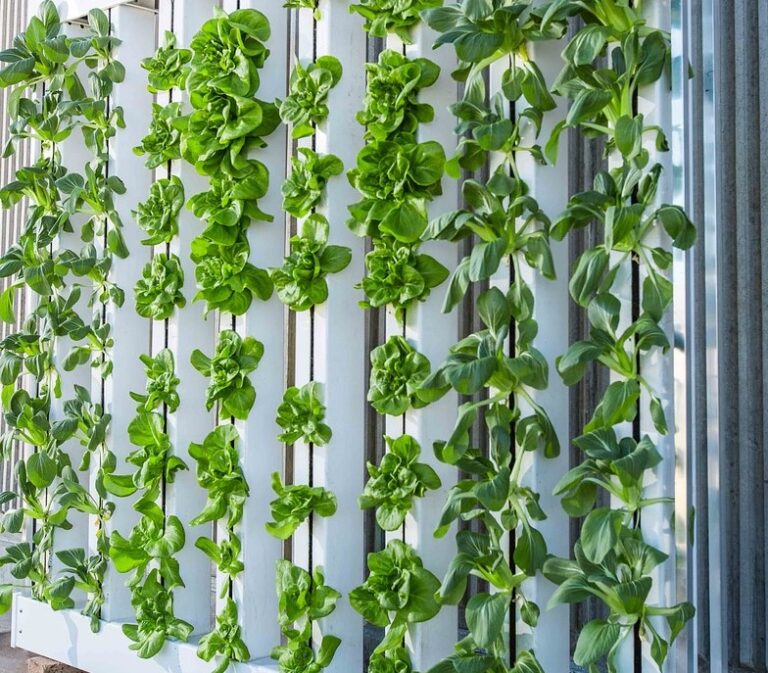Europe’s largest Vertical Farm has been inaugurated in Verolanuova, in the province of Brescia. The production site of Kilometro Verde, an innovative startup operating in Vertical Farming, will grow a revolutionary product.
The Vertical Farm is an indoor complex where crops grow vertically in closed structures in a controlled habitat, without the use of pesticides. Fully automated, it is based on hydroponics, a method that leverages values such as sustainability, environmental protection, ethics and healthfulness.
Table of Contents
What is a vertical farm
A vertical farm, or vertical farm, is a structure in which crops are grown in stacked layers, taking advantage of space at height.
It is a modern concept of agriculture, often making use of controlled environment growing (CEA) techniques, such as hydroponics, aquaponics and aeroponics. These techniques optimize plant growth without using soil and with less water and fertilizer consumption.
What are the advantages of vertical farms
Vertical farms offer several advantages over traditional agriculture, both environmentally, economically and socially. Some of these advantages are:
- Reduced land use: vertical farms allow more food to be grown in less space, saving farmland and preserving biodiversity;
- Reduction in water use: vertical farms use closed-loop irrigation systems, which recycle water and reduce water waste;
- Reduction in pesticide use: vertical farms are protected environments where air is filtered and pests are excluded. This eliminates the need to use chemicals that are harmful to plants and human health;
- Reducing greenhouse gas emissions: vertical farms reduce the transportation of agricultural products, which is a major source of air pollution. In addition, some vertical farms use renewable energy sources, such as solar or wind, to power their systems;
- Increased production and quality: vertical farms allow different plant species to be grown in any season and climate by controlling environmental conditions. This increases the yield and quality of produce, which is fresher, more nutritious and safer;
- Increased food security: vertical farms can provide zero-mile food even in urban areas or areas where traditional farming is difficult or impossible. This helps reduce dependence on imports and ensure access to food for all.
Sustainable and innovative agriculture
Vertical farms are an innovative and sustainable solution for the agriculture of the future. They make it possible to produce food efficiently and safely while respecting the environment and people.
Vertical farms are still being developed and tested, but they have already demonstrated their potential and feasibility.
In Italy, there are several projects and consortia dealing with vertical farming, such as the PRIN VFarm (Sustainable Vertical Farming) project, which aims to facilitate the rapid development of vertical farming in Italy through interdisciplinary research.
Read also: What is Permaculture and why is it an example of sustainability












